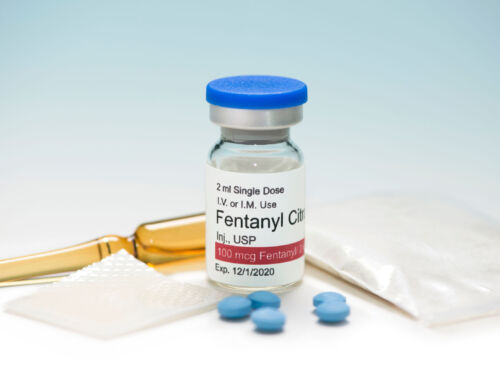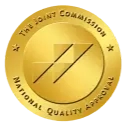Drug and Alcohol Detox Center
Overcoming alcohol addiction can feel like an impossible mountain to climb. When people try to do an alcohol detox on their own, they’ll often experience the initial withdrawal stages which can cause them to return to their old habits. Approximately 2,400 people in Georgia die each year from incidents related to excessive alcohol use. The good news is that there’s a safer, more systematic approach to beating alcohol addiction. Learn more about our alcohol detox in Atlanta and how it can help you.
How Addictive Is Alcohol?
The level of addiction due to drinking rises according to the amount consumed. So, the more you drink, the apter you are to develop an addiction to drinking. The time between the first drink and the point when you become physically and mentally dependent on drinking can quickly escalate if you drink a lot.
Tolerance Levels
The brain uses alcohol like an endorphin. It stimulates the brain’s pleasure centers. This feeling of pleasure wears off, though. If you drink long enough, you’ll start to notice that you need to imbibe more to have the same buzz. Needing more to drink to feel high is called tolerance. If you drink long enough, you’ll need a large amount of an alcoholic beverage to experience even the most basic type of intoxication. This tolerance to drinking remains a significant sign of addiction.
Physical Dependence and Withdrawal Symptoms
Your body becomes accustomed to having a regular level of alcohol to function. Your brain depends on higher and higher levels of alcohol to feel buzzed. So, you’ll need to drink for your body and brain to function normally. And when you go through withdrawal during alcohol detox, you’ll feel some unique withdrawal symptoms. If you’ve been drinking and can’t drink for a while, you’ll feel these withdrawal symptoms, too. If you suddenly stop drinking, and you have an addiction, your body will begin to withdraw from ethanol, causing a significant reaction. Some of the symptoms of withdrawal include:
- Headaches
- Vomiting
- Increased sweating
- Anxiety
Psychological addiction and alcohol detox includes such symptoms as:
- An intense craving to drink
- Social issues such as legal, financial, or relationship issues
An addict will continue to drink even though they know it will cause them additional trouble or make them feel ill in the long run. Some of the withdrawal symptoms you can have during alcohol detox include:
- Blood pressure issues
- Increase in body temperature and pulse
- Seizures
- Hallucinations
- Headaches
- An intense craving to drink
- Insomnia
- Anxiety
While the process of alcohol detox can vary depending upon the severity of the addiction, the amount of alcohol regularly consumed, allergies, and co-occurring disorders, most can be broken down into four stages.
Early Stage
Withdrawal and detox begin as early as two hours after the last drink, but more frequently begin around 6-24 hours after the last drink. Symptoms are generally mild, and medication is not typically required.
Peak Stage
Generally, the worst stage for most addictions. This stage typically occurs between 24-48 hours after the last drink. Nearly all of the alcohol has left the body, and relapse is most likely. This is when medication and therapy are the most crucial.
Weakening Stage
The body is growing accustomed to the absence of alcohol. Symptoms begin to subside, and medication can be weaned off or ceased at this stage. Other forms of therapy may be introduced. Rarely, when the most intense and severe symptoms (delirium tremens) set in.
Final Stage
This stage lasts between 5 to 14 days after detox begins. Inpatients are capable of leaving detox and entering residential treatment. The good news is that there is a safe way to recover, and avoid relapses moving forward. An alcohol detox program backed by medical treatment, in a safe environment, supported by a caring community can help you get your life back on track. And with aftercare programs designed to mend relationships, rebuild finances, and feel whole again, it is possible to build a bright future. Physical withdrawal symptoms include hand tremors, nausea and vomiting, and a fever.
Mental alcohol withdrawal symptoms such as depression, nightmares, or panic attacks. Delirium tremens is life-threatening tremors that occur 12 to 48 hours after stopping drinking. Delirium tremens can cause hallucinations, violent shaking, seizures, and heart problems. 1 out of every 20 people will experience these dangerous withdrawal symptoms if quitting drinking cold turkey. A full recovery is possible, and it’s never too soon to start an alcohol detox program. At Atlanta Detox Center, the alcohol detox program is designed to keep patients comfortable and cared for throughout the entire process.
Here are the steps:
Step 1 — The patient gets a psychological and physical assessment, gets their lab work done, and receives a personalized treatment plan. The patient is then shown to their room which has a comfy Tempurpedic bed, flatscreen television, and there will be plenty of meals and snacks available—everything to make sure they’re as comfortable as possible.
Step 2 — The patient is administered medical treatment by our certified professionals to alleviate their withdrawal symptoms. The medication helps to reduce the typical stresses and pains that come with alcohol detox, which also helps curb their urge to use again. The patient will have 24/7 access to staff who will regularly monitor and provide medication as needed.
Step 3 — Upon completion of the initial heroin detox, the patient is then guided through a therapy program to help ensure ongoing recovery.
Depending on the patient’s unique needs, they might need one or a combination of therapies. Some examples are recreational therapy, expressive, group, trauma, motivational, family, cognitive behavioral therapy, aftercare, and even case management for issues like bad credit, helping with a criminal record, or finding employment. The alcohol detox, combined with the aftercare program, is all about setting the patient up for long-term recovery. Physical withdrawal symptoms include hand tremors, nausea and vomiting, and a fever. Mental alcohol withdrawal symptoms such as depression, nightmares, or panic attacks. Delirium tremens is life threatening tremors that occur 12 to 48 hours after stopping drinking. Delirium tremens can cause hallucinations, violent shaking, seizures, and heart problems. 1 out of every 20 people will experience these dangerous withdrawal symptoms if quitting drinking cold turkey.
Three of the Biggest Challenges to Recovery:
Many people struggling with addiction fear the pain and discomfort during the withdrawal period of alcohol detox. The anticipation of being judged or looked down upon keeps them from reaching out for help. The thought of repairing all the damage that has been done — bruised relationships, damaged credit, tarnished public records — can give people a sense of, “This is impossible, so why bother.” It all comes down to confidence and comfort. If the person doesn’t feel confident they can actually recover, they’re not likely to try to beat their addiction. And if they do try, if the person is feeling discomfort—either from the aches and pains of the withdrawal, or the perceived shame and guilt from their peers—they’re setting themselves up for failure. When choosing an alcohol detox program, here are the three important things to look for:
Medical assistance
Withdrawal can be uncomfortable and in some cases dangerous. And while nobody should self-administer a medical detox, they also shouldn’t attempt beating the painful withdrawal stages without medical assistance. A successful alcohol detox program should be supervised by dedicated professionals at every step, monitoring vital signs, administering medication as needed, and guiding you through the first steps to recovery.
Positive community
Nobody wants to be surrounded by people who are constantly trying to “fix” them. You want to be around people who are just like you, who understand you and what you’re going through. One of the keys to a successful recovery is being part of a community of people who’ve been in your shoes and come out clean on the other side. These people can show you the exact steps you need to take to get back on track (and stay there).
A personalized, long-term plan
The problem with one-size-fits-all detox programs is that each person is unique. People have different backgrounds, emotional hurdles, and financial situations. They also have different tolerances, triggers, and physical and psychological needs. According to The National Alliance on Mental Illness roughly half of all people struggling with addiction also have unique mental circumstances that can affect the treatment methods and the duration they need for recovery. When choosing an alcohol detox program you should look for one that takes the time to assess your personal circumstances. Make sure the program asks about and takes into consideration the substances you’ve been using, the dosage and duration of use, and your full medical history, and uses that information to create a personal plan designed only for you.
Diagnosing Alcoholism
With these three things, you can feel confident that your personal alcohol detox program will get you where you’re going. And you’ll know that you will get there comfortably with the proper medical treatment, and with the support of people who genuinely care about you. To achieve a proper diagnosis of alcoholism, doctors need to rely on the medical and personal history supplied by their alcoholic patients. The main factors in diagnosing alcoholism remain:
- Having an increased tolerance to alcohol.
- The patient experiences withdrawal symptoms when they stop drinking.
- An inability to stop drinking.
- Neglecting important responsibilities or activities.
- Spending a lot of time drinking.
- Having health problems directly related to drinking.
- Feeling a strong need to drink.
We need to emphasize that an alcoholic seeking treatment for their disease needs to stay honest with their doctor to get the correct diagnosis and treatment for the disease of alcoholism.
Signs of Alcohol Abuse
If you, a friend, or a relative has the signs of addiction below, they may have a problem with alcohol abuse. Some of these signs include:
- Excessive drinking, even though the act results in serious social or legal issues.
- Drinking enough to result in physical or mental health issues. – Drinking in spite of being ill due to alcoholism.
- The person gets very angry when confronted about their drinking.
- Feel guilty about drinking.
- Drinking when they wake up as a hangover treatment. Hangovers signal that the body is going through withdrawal symptoms.
- Withdrawal symptoms when they stop consuming alcohol for a while.
Your Next Steps – Alcohol Detox in Atlanta
You can start your path to recovery today — one phone call is all it takes.
At Atlanta Detox Center, we’ve got the tools and programs to help get your life back on track, and we’re focused on you. We understand your situation, and we’re friendly to chat with. Let us take that heavy burden off your shoulders. Call us at 844-658-0927.
Asking for help requires strength — and we admire your courage. Now let’s do this together!
Just give us a quick call at 844-658-0927. Let us answer your questions. Talk with some of our team members at our alcohol detox in Atlanta who used to be in your shoes and have come out the other side sober and happy. You’ll be glad you did. One conversation can change your life… And 5 minutes is all it takes.







